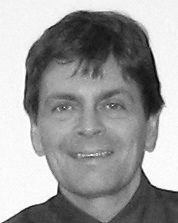Hauptinhalt
Topinformationen
Projekt P6/2
Titel
Typical and Non-Typical Temporal Relaxation Processes in Macroscopic Quantum Systems
Projektleiter
- Prof. Dr. Peter Reimann (Universität Bielefeld)
 |
Kurzbeschreibung
On the microscopic level, the dynamics of an isolated many-body system generically exhibits an extremely complicated (chaotic) behavior. Even after arbitrary long times, the temporal evolution usually does not admit any obvious simplifications compared to the early times, and, in particular, does not approach some steady state. Moreover, small changes of the dynamics or the initial conditions typically lead to large modifications of the microscopic system states after rather short times. In contrast, the observable behavior on the macroscopic level often appears to be surprisingly simple and robust, seemingly even approaching some steady long-time limit which is largely independent of most of the microscopic details. The overall main goal of the project is to better understand some of these issues on a fundamental, quantum mechanical basis, both qualitatively and quantitatively. Specifically, during the second funding period a first objective is to further pursue the central question of the previous funding period: How does the temporal relaxation of an unperturbed system typically change in response to a (not too strong) perturbation, modeling, for instance, the coupling of two otherwise isolated subsystems or the interaction between otherwise non-interacting particles? A second objective is to extend those concepts to systems which are subject to a time-periodic external driving. Further major issues concern the conceptual foundation of random matrix theory and the analytical exploration of specific model systems.

